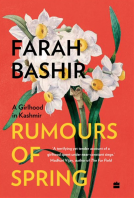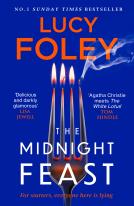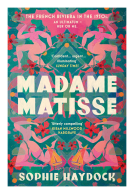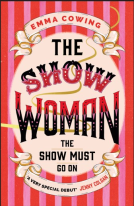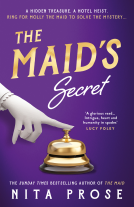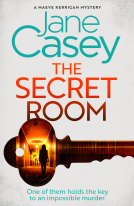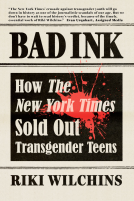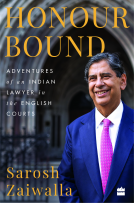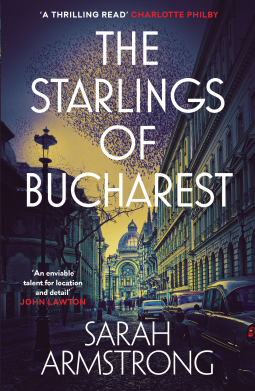
The Starlings of Bucharest
by Sarah Armstrong
This title was previously available on NetGalley and is now archived.
Send NetGalley books directly to your Kindle or Kindle app
1
To read on a Kindle or Kindle app, please add kindle@netgalley.com as an approved email address to receive files in your Amazon account. Click here for step-by-step instructions.
2
Also find your Kindle email address within your Amazon account, and enter it here.
Pub Date 22 Apr 2021 | Archive Date 25 Apr 2021
Talking about this book? Use #TheStarlingsofBucharest #NetGalley. More hashtag tips!
Description
Ted moves to London to become a journalist but quickly slides into debt. Things look up when he is given the opportunity to go to Romania to interview a film director and then attend the Moscow film festival.
But someone has other plans for him.
Has he walked into a trap?
Advance Praise
‘Sarah Armstrong has an enviable talent for location and detail. I think the master himself would endorse this novel — an enthralling Greene-land tale of an innocent young man out of his depth in a cold, cold war.’ John Lawton
‘Brilliantly evocative of the insidiousness, paranoia and mistrust of the Soviet period. I tore through each chapter with a growing sense of unease, never quite knowing who to trust.’ Charlotte Philby
‘Sarah Armstrong evokes the cold war era and colours it in with textures and scents and emotions. The prose is beguiling – Alice Munro meets John le Carré.’ Fiona Erskine
Available Editions
| EDITION | Paperback |
| ISBN | 9781913207007 |
| PRICE | £8.99 (GBP) |
Featured Reviews
 jean luc e, Librarian
jean luc e, Librarian
Please allow me first to ask one simple question: will Ms. Armstrong bring Ted Walker back soon in another installment of her stunning series "Moscow wolves?" Because she definitely left me hanging and begging for more.
The Starlings of Bucharest is the suspenseful and at times menacing story of a young and naive Englishman navigating the treacherous waters of Eastern Europe in the mid 70s. An aspiring journalist, Ted is send first to Bucharest in order to interview a famous film director then on to Moscow to attend an international film festival. Yet unbeknownst to him,Ted may soon fall into a dangerous trap that could change his life forever....
Redolent of the Soviet paranoia that permeated Western Europe between 1975 and 1989, this incredible novel takes the reader into the murky and often absurd world of espionage and counter-espionage so prevalent during the last years of the Cold War. Very atmospheric and full of great historical details, this book was unputdownable and kept me guessing until the end & unfortunately beyond... So yes I do hope that Ms. Armstrong will be kind enough to bring back Edward Walker into my life once again!
A fiendishly clever novel to be enjoyed without moderation!
Many thanks to Netgalley and Sandstone for giving me the chance to read this wonderful novel prior to its release date
The Starlings of Bucharest
This is the second in the Moscow Wolves series of novels, following on from The Wolves of Leninsky Prospekt. I’ve been told by other readers that here we meet some of it’s characters, but from a different perspective. Our hero is Edward Walker, known as Ted. He’s trying to make his way as a journalist in London, after leaving the working class fishing village he grew up in for something different. His career hasn’t taken off as he would have liked and he’s drifting into debt. So when he gets the chance to work for a film magazine, with an assignment to travel to Romania and interview a famous film director he jumps at the opportunity. However, this is the 1970s and Romania is in the grip of Communism. A visiting Westerner is very likely to be treated with suspicion and his plans to travel on to the Moscow film festival could be equally eventful. This sets the scene for an intelligent and different thriller.
For the first few chapters of the book I felt thoroughly confused by what was going on, but I started to realise that Ted is also very confused. He has a driver/ guide but each day he expects to meet with his interviewee and it doesn’t seem to happen. There was a random comical moment where his guide asked if he could have Ted’s trousers when he left. The author creates an atmospheric picture of the these complex destinations and all their contradictions. Ted notes that people are picking lime blossom in the park and observes that they’re so hungry they’re eating from the trees. His guide corrects him, they’re picking lime blossom to make tea. The author conveys the lovely, well maintained public spaces and the lack of unsightly advertising hoardings that are the usual in the West. Yet, there is a drabness to everything. The food is bad, the clothes are dull and shops seem empty. Ted observes: ‘It was just a place of waiting and brown paint’. Then there are the restrictions and the guide who’s really a minder, ready to challenge every wrong or damaging assumption made.There were moments where I was just an unsure as Ted about what was really going on. The first time was very early on in Bucharest, when his guide diverts him to a lakeside where a group of men are fishing. All at the same time, Ted observes how beautiful it is but also how isolated, just the sort of place you might take someone to kill them. I really felt like I was in Cold War Europe. Equally, the sections in London felt like the 1970s, slightly worn and decaying, with seedy bedsits, a sense of desperation and simmering violence.
I was interested in the incredible detail the security services go into when looking for recruits. It’s a master class in psychological manipulation. They consider everything about the subject - his clothing, his food and drink choices, his likes and dislikes. They watch behaviour. Who do they trust? Who is important to them? They look in their waste bins and listen to their phone calls. What they’re looking for is a weakness. A way in. Whatever it takes to turn them. Then they bring in the bait - if he has a weakness for women, then a beautiful woman to tempt him from the straight and narrow. I’m a trained therapist and I could learn a thing or two from the listening skills employed. They’re looking for chinks in the armour. Something they can exploit. For Ted that could be a case of never feeling heard or valued. His concern about wanting to get on. It could even be his naivety, decency and willingness to help. So, Ted is noticed by security services and when he returns to Moscow for the film festival he is watched carefully.
What was most interesting to me, was how Soviet agents used class difference as leverage. We’re used to public schoolboy spies, recruited at Oxbridge and I think this could even have been exploited a bit more. He notices that there are opportunities for people from working class backgrounds in Moscow, perhaps more than in England. This is the chink in Ted’s armour and leaves him open to exploitation in a regime where security services have an ideology to push. There were sections that plodded a bit, but that’s maybe because Ted is a very steady, plodding sort of character. He wants to break into Fleet Street as a journalist but I doubt that he has the sheer brass neck and ambition it takes to get there. He seems like a man who will always end up where he is by accident rather than design. As one character observes ‘any idiot can be a useful one’. The author kept me guessing all the way through. We are learning as Ted is learning, and he does a lot of growing up too. Aside from the George Smiley series, the historical era of the 1970s Cold War hasn’t often been depicted in spy fiction, so I felt I was reading something new in the genre. All in all the stage is set for an interesting book three in this intelligent and unusual series.


